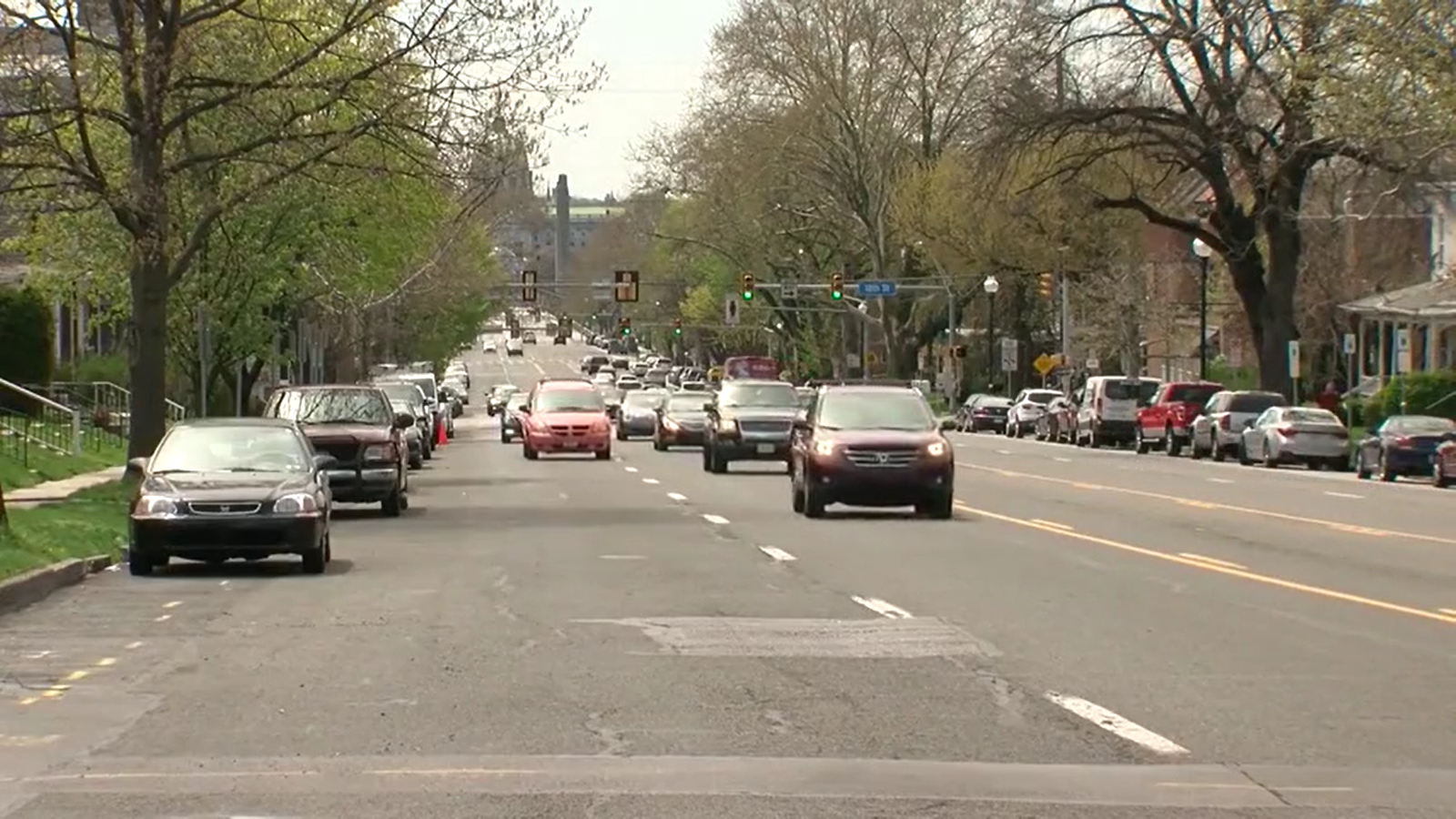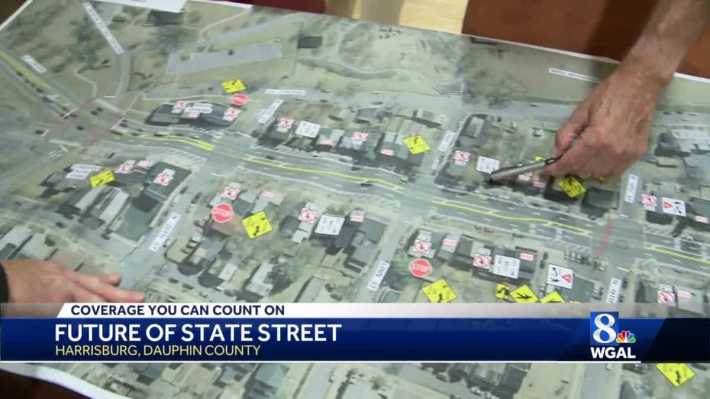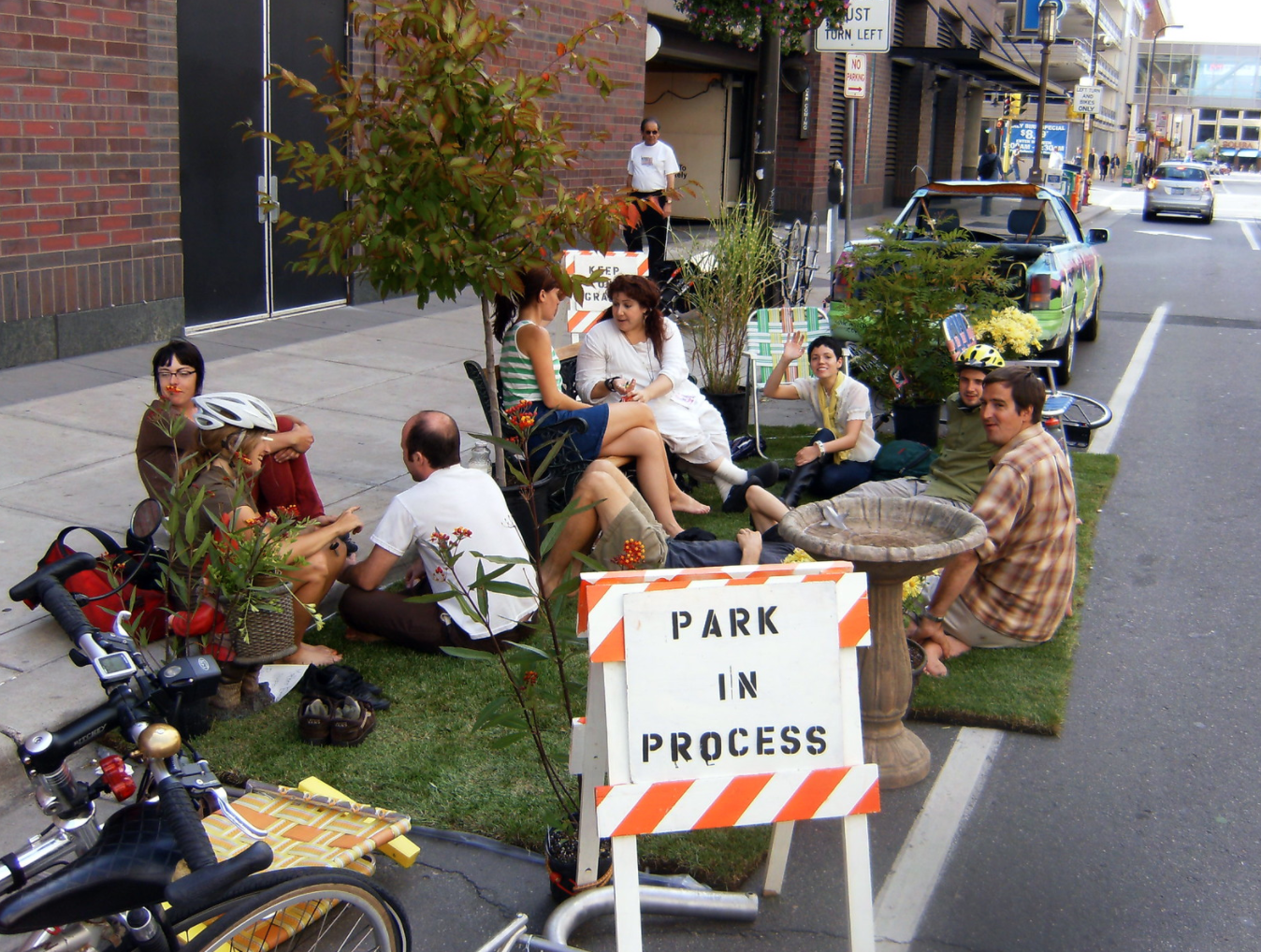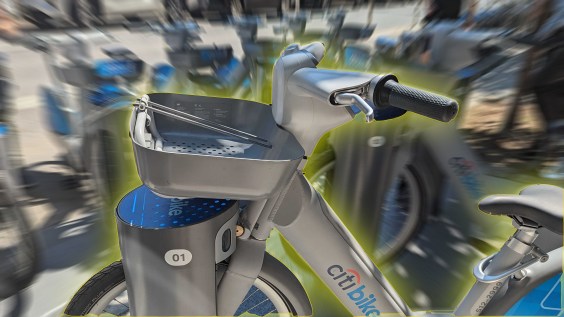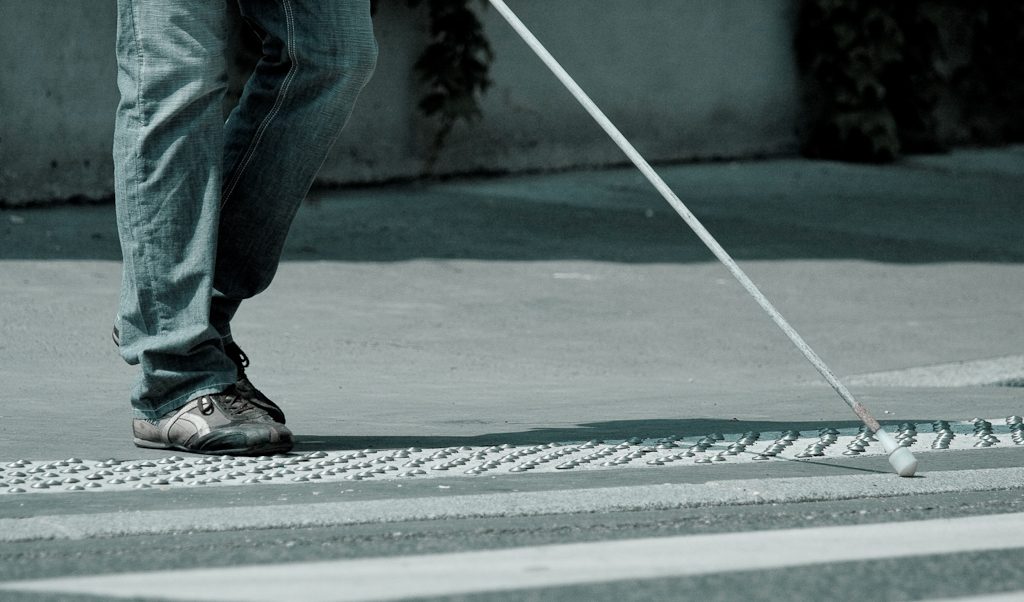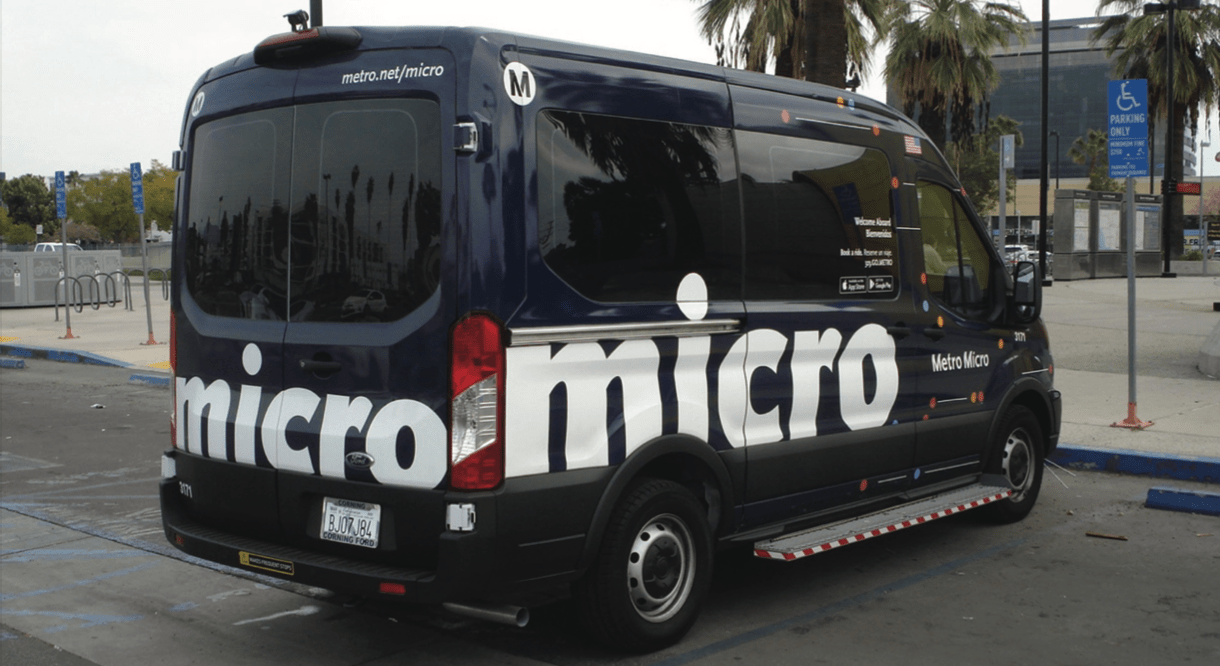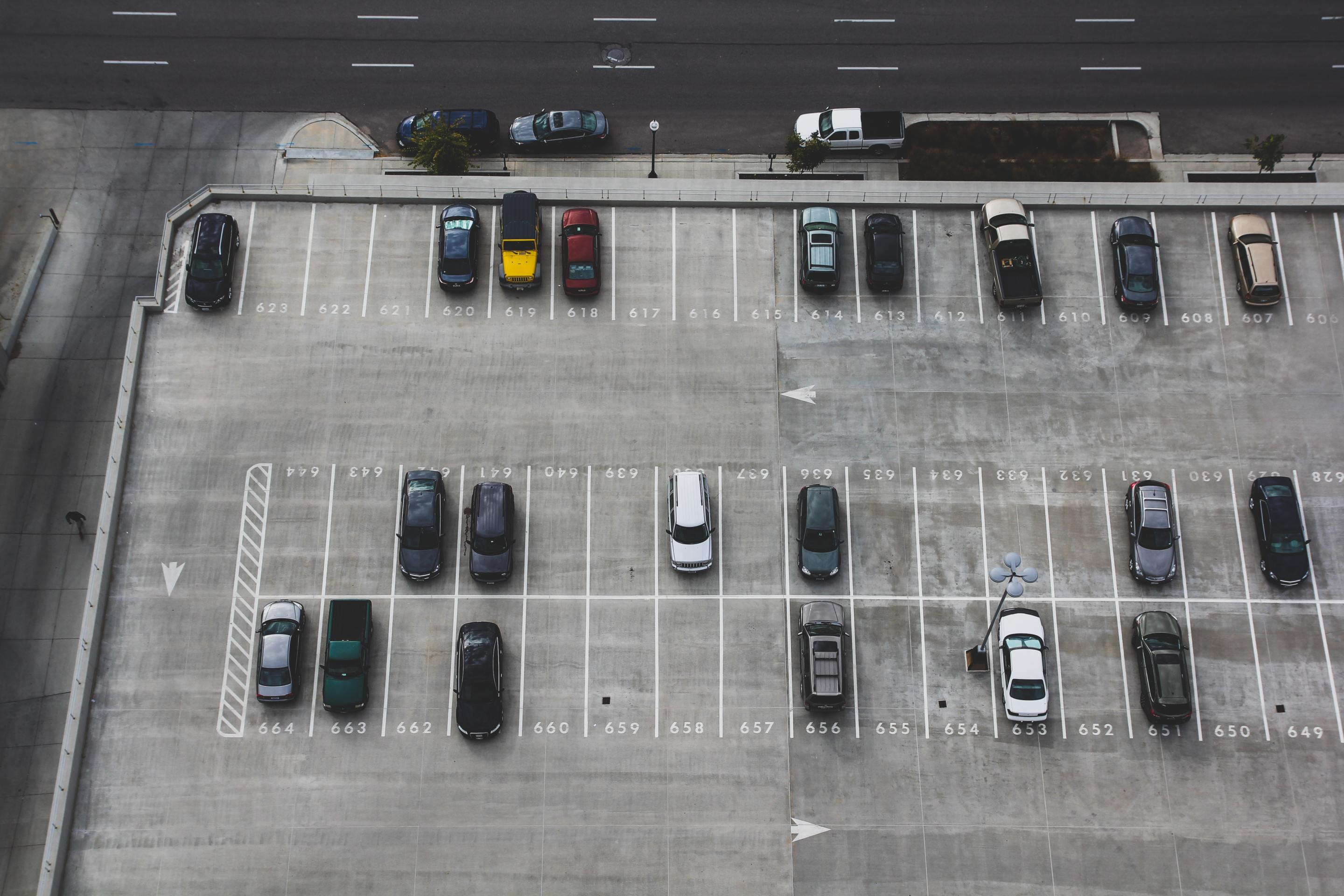A plan to redesign one of the most dangerous streets in all of Pennsylvania has been abandoned by the new mayor of Harrisburg amid — you guessed it — complaints about lost parking spaces.
First, the backstory: In 2018, former Mayor Eric Papenfuse proposed putting the currently seven-lane State Street on a road diet. State Street has two parking lanes, two lanes of traffic in each direction, and a middle turning lane. It runs through one of the poorest neighborhoods of Harrisburg and is consistently one of the deadliest streets in America, where four pedestrians and one cyclist were killed in just a 0.68-mile stretch during one 20-month period.
The road diet would have taken away one lane in each direction, narrowed the remaining lanes, and installed pedestrian islands, bus stop cutouts, and a protected bike lane. Advocates and experts said the redesign would make the roadway safer for all roadway users, especially for bicycle riders and pedestrians. Most important, the plan had the full support of the bike/ped community and was approved by the Harrisburg City Council (of which the current mayor was president at the time).
Mayor Wanda Williams took office in January. Backed by Chris Kufro, who took over the PennDOT regional office a month earlier, Williams pandered to car owners. As State Street is owned by the Commonwealth, PennDOT approval is required for any changes. Construction of the approved plan had barely commenced earlier this year, when some State Street residents realized their curb-side parking would be impacted and they would need to move their vehicles each day. They organized to express their vehement opposition to the changes (reminder: the changes had already been approved).
In response, the mayor halted the project and directed the contracted engineering firm to conduct new public outreach meetings with the goal of finding a new design.
Now only minor safety improvements are now planned such as buffer lanes for car doors, some colored crosswalks, some signage,and sharrows that arguably make streets less safe for bike riders. This will leave pedestrians and bicycle riders to continue to navigate a dangerous State Street corridor with its four through travel lanes, center turning lanes and curb-side parking along both sides of the street. The city has shown more concern over the door of a car than residents outside of cars.
The story at this point portrayed the changes as a battle of bike lanes versus residential parking; never mind that the original plan with parking-protected bike lanes did not impact the number of available parking spaces. One resident said: “I never see anyone riding a bike up or down State Street, so I don’t understand why it has to be included. There’s no parking for residents, so for you to limit parking for a bike lane … I don’t see the correlation.”
NIMBY prejudices against safe bike and pedestrian infrastructure were used by opponents as cudgels to dismiss the grievous injuries and deaths that occur due to motor vehicle centered roadway design.
State Street is used by commuters as an east-west route from the suburbs into downtown Harrisburg and the state Capitol complex. As it begins work to rebuild and greatly expand Interstate 83 over the next eight-years, PennDOT changed its design demands for State Street and now insists that all four travel lanes be maintained to accommodate potential diversion of traffic from the Interstate 83 construction — this is in spite of having known that the construction would occur when the road diet was approved.
PennDOT has consistently put commute times over road safety and this road diet was already altered because commuters could have to wait up to seven minutes.
Streetsblog contributor and city designer Jeff Speck even waded into the debate to assure people that the road can and should be narrowed and that it would not ultimately cause congestion. He went on to explain that neither parking nor the bike lane needed to be sacrificed and that removing lanes as well as narrowing those remaining was the best way to save lives. His expertise was ignored by both the city and PennDOT.
Continuing to push four lanes of commuter traffic through a densely populated, residential neighborhood, one of the poorest in the city, when commuters have less-disruptive alternatives, is irresponsible and can only lead to further injury and death. (In a recent op-ed, the mayor defended her position as the classic "listening to the community," but this reporter fired back to remind her honor that cyclists are part of that very same "community.")
Unfortunately, the City of Harrisburg and PennDOT have brought forth a new roadway design that, at best, only minimally improves safety for pedestrians and does little to improve safety for bicycle riders and other modes of travel. The mayor, City Council and PennDOT need to go back to the drawing board to prioritize the safety of all roadway users in this vital neighborhood and transportation corridor.
Brandon Basom is a Harrisburg resident and volunteer for Recycle Bicycle. He has been hospitalized by, and is tired of losing friends to, preventable traffic violence.
